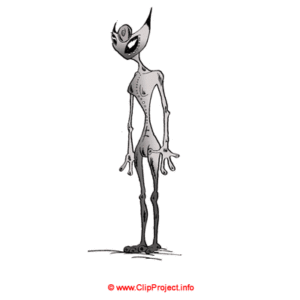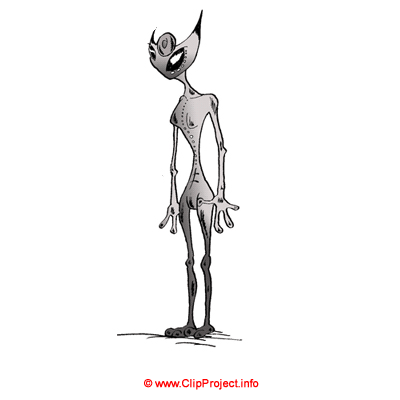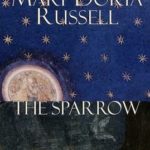The “Alien Work” Of God Part III
 I don’t know if you’ve been following the news, but recently, NASA revealed that the orbiting Kepler Telescope has found even more extra-solar planets, several of which are close in size to Earth. And, as always, the moment we get a news story like that, we hear the inevitable speculation about alien life. Are they out there? Are they like us? How will we ever know? We’ve certainly seen some of that speculation on this very blog.
I don’t know if you’ve been following the news, but recently, NASA revealed that the orbiting Kepler Telescope has found even more extra-solar planets, several of which are close in size to Earth. And, as always, the moment we get a news story like that, we hear the inevitable speculation about alien life. Are they out there? Are they like us? How will we ever know? We’ve certainly seen some of that speculation on this very blog.
I think it really boils down to this question: if alien life exists, if it seems to be sentient, would said aliens have souls?
This might seem like idle speculation, especially since the chances of human beings making contact with intelligent alien life seems so unlikely. But I would argue that this really isn’t idle speculation at all. But to understand why, we have to take a peek at a fantasy novel that was published a few years back.
 When I first heard of it, I was impressed by the title, Summa Elvetica: A Casuistry of the Elvish Controversy. The theologian in me loved the allusion to medieval Christian tomes and the proper use of the word “casuistry.” And the premise was a killer as well. What if fantasy races lived alongside the Roman Catholic Church in medieval times? How would the Church determine if those races had souls?
When I first heard of it, I was impressed by the title, Summa Elvetica: A Casuistry of the Elvish Controversy. The theologian in me loved the allusion to medieval Christian tomes and the proper use of the word “casuistry.” And the premise was a killer as well. What if fantasy races lived alongside the Roman Catholic Church in medieval times? How would the Church determine if those races had souls?
It might seem like a silly question to ask, but Theodore Beale, the author, revealed how important answering that question really is. The Catholic analogue in the book wrestles with the question of whether or not elves have souls for a very important reason. If the elves don’t have souls, then there is no reason for the humans to go to war against them, slaughter them like animals, and take their stuff. If they do have souls, then the Church would be morally obligated to share the Gospel with them. And so, the fantasy-pope of the story sends a young theologian to meet-and-greet the elves to determine the answer. At the end of the book, the Church presents its findings.
What fascinated me was Beale’s historical footnote in the book (which I would quote, but I seem to have misplaced my copy of the book) that revealed that much of the language he used in writing those findings came from an actual theological document produced by the real Roman Catholic Church shortly after the Americas were discovered. Only the Catholics weren’t worried about elves. They weren’t sure what to make of the Native Americans. And so the real Catholic Church debated whether or not these “newly discovered” people had souls. I don’t know how long the debates lasted, but in the end, they decided they did. Unfortunately, that declaration didn’t stop the European settlers from mistreating the Native Americans, but I digress.
I suppose the reason why I’m bringing this up is because I suspect that if we were ever faced with sentient alien life, we’d have to answer that question and quickly. To put it another way, are aliens people too? A lot would be riding on the way we answer that question, especially in terms of how we would relate to each other after the initial contact.
I guess what I’m worried about is this: given humanity’s track record for how we’ve treated each other, beings that are undeniably and unarguably created in the image of God, I fear that in any future scenario between aliens and humans, we’ll be the bad guys. I would suggest that perhaps the safest thing to do is to simply assume that any intelligent aliens we encounter actually do have souls and go from there.
Which naturally begs the question: if aliens do have souls, do they need to be saved? In two weeks, we’ll sit at the feet of a master and see what he has to say on the subject. Until then, keep watching the skies!









































It’s such fun to speculate, and that’s where our fiction comes in. That book about whether elves have souls sounds really awesome.
Colossians 1:23
if you continue in your faith, established and firm, and do not move from the hope held out in the gospel. This is the gospel that you heard and that has been proclaimed to every creature under heaven, and of which I, Paul, have become a servant.
I’m thinking this means that the only market for souls is with mankind, to whom the gospel was given.
Ah, but here’s the thing: Does what Paul says there really exclude aliens? It could be that Paul is engaging in some colorful hyperbole in describing the apostles’ activities (since at the time of the writing of Colossians, a lot of creatures hadn’t heard the Gospel yet).
Or another question that we should consider is if Paul intended that as a geographical designation or an existential one. Perhaps “under heaven” could mean “creatures that live in the mortal realm,” which aliens certainly could be.
Proof texting can be tricky, especially when it comes to stuff like this.
As I said last week, the odds against intelligent life on ANY planet are so high that I do not expect this to become a real-world issue anytime soon, although it is fun to speculate on. I also should add that Summera Elvitica to my reading list.
Oh, I agree. In the end, I’m not a “true believer” when it comes to alien life. I have serious doubts as to whether we’ll ever know. But, like you said, it’s fun to speculate and “dance on the end of a theological tree branch,” as it were, especially since such speculations can have real-world connections.
I’ve read the book. I give it two thumbs up! Thanks for the interesting and informative review.
I was aware of the debate on whether Africans were human, and whether they were equal in intelligence and therefore ought to be treated as equals. I wasn’t aware of the debate about the Native Americans, although somehow I’m not at all surprised.
I could go off on a tangent about this, and how the theory of evolution has contributed to encouraging this debate in other parts of the world even today, but I wouldn’t want to derail the general gist of the conversation.
The every creature under heaven led to all dogs go to heaven too speculation. If God created the heavens and the earth, why would he give souls only to some sentient beings and not others? A former pastor used to say he believed we were the only sentient beings in this creation because God wanted to show us how big he is.
John asks what is a person? Is is sentience? So the creatures who come, bring the book How to Serve Man are pretty smart (awful glad they didn’t want girls), are people or not? If all this other sentient race wants to do is eat us, does that make them less people-ish? If they don’t see us as people but great snacks? Or capable only of being a servant who needed to be cared for and given a purpose for breathing and taking up space?
Since Mr. Otte started his series, I’ve been thinking on this question, and I feel that any aliens that may hypothetically exist would really be no less “human” than us.
There was a great thread on the Anomaly [This is a link even though it doesn’t look like one.] about this subject that you guys want to read; I posted more about my idea there.
I have read Summa Elvetica as well, and the comparison with that and the mention of Native Americans gives me another thought. When the Americas were discovered, they were a New World; people had known the world was round long before Columbus, but I’ve taught that no one in any of the civilizations of Asia and Europe had ever conceived of the existence of the Americas. And when Europeans came out this way (I’m in the U.S. ;-)), they found strange alien cultures, but the Native Americans were just as human as they were.
I think could only relate meaningfully to beings created in God’s image as we are. Therefore, if we were ever to discover sentient life that we could relate to on other planets, I think the aliens would also have to be created in God’s image. I think a ramification of this is that all aliens would be essentially “human”; if you prefer to have the word “human” mean exclusively Earthlings, then these aliens could be said to be in the family of Mankind. They might look very different physically, but I think they would definitely be humanoid in form and probably able to breed with Earth humans.